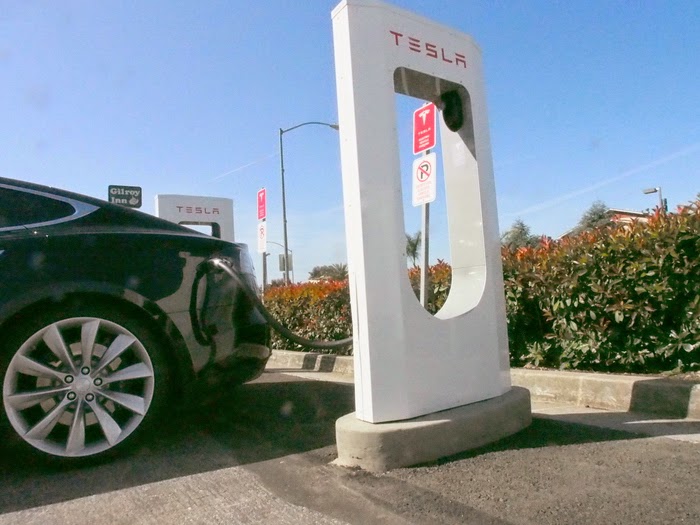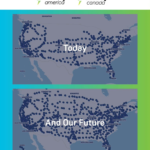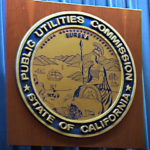Over the weekend, at the Midwest Renewable Energy Association fair in Custer Wisconsin, one JB Straubel, the CTO of Tesla Motors, gave a talk. According to a report by Electrek, Straubel said that Tesla Motors is “talking with” other automakers about the Supercharger network. Clearly the current situation with three competing DC Fast Charging standards is not helping the project of electric car adoption. Replicating the Road Trip experience requires very high power Fast Charging — recharging 100 kWh in 15 minutes would require a 400 kW charging rate — and it’s best from a macro-economics standpoint for there to be one fast charging standard rather than three (or four, if you count the Chinese).
Unfortunately I wasn’t able to find a recording of Straubel’s comments, just the Electrek![]() report which said very little. Apparently Straubel was answering a question about Tesla’s policy to share intellectual property, and said:
report which said very little. Apparently Straubel was answering a question about Tesla’s policy to share intellectual property, and said:
“For things like Supercharger, we are actively talking to other car makers and we are trying to figure out a structure to work with them.”
It’s known that Tesla has joined forces with the association pushing to implement a 150 kiloWatt charging rate on the ComboChargingSystem. In other words, Tesla Motors is siding with CCS in the battle between CCS and CHAdeMO. At the time I made a wild-ass-completely-uninformed guess that Tesla Motors could possibly switch the Supercharger system to support CCS. That would entail switching charging cables, designing an adapter for existing Tesla car owners to use, and changing their control software. Given the sorts of things Tesla does — it’s not an insurmountable engineering challenge.
Consider the market advantage Tesla Motors could have by owning a ubiquitous CCS-compatible charging network that’s already well developed and popular. Tesla could be earning revenue from cars sold by other automakers.
But .. that’s wild-ass theorizing and who knows if that’s what Tesla Motors is thinking.
Tesla Motors is on record as opening their patent portfolio to be used by other automakers at zero royalty. Tesla did not “open source” their patents as many seem to think they did. The phrase “open source” has a specific meaning, and Tesla’s statements make it clear they do not mean “open source”. For example, Elon Musk clearly said that they reserved the right to “go after” anyone who they thought was using Tesla’s technology in an inappropriate way. That’s not an open source license on patents, instead what they did is make the patents available at zero royalty under some undefined terms.
Does that mean another automaker could just implement Supercharger in their car and plug into the Supercharger network? Nope. First, a patent is not enough information to successfully implement the technology. Patents — my understanding here is a little limited despite having been awarded three patents myself — are a general description of a process and are designed to be more general than a specific implementation of the idea. That way a patent covers a broader set of possible products. What it means for any potential Supercharger implementor is, the patents don’t give enough information to do implementation, and therefore you still have to talk with Tesla Motors to get that information. Or else reverse-engineer the implementation. You can find discussion in certain forums where people have instrumented their supercharger port to reverse-engineer the implementation.
Elon Musk has said in the past that Tesla Motors would like for other automakers to use the Supercharger network. Ergo, it’s likely that JB Straubel said nothing new over the weekend. Musk went on to say that the other automakers would have to help pay for the Supercharger network.
It’s my belief that the other automakers have no incentive to sell cars that recharge on Tesla’s infrastructure. Doing so would build up Tesla’s prestige and revenue, giving those other automakers nothing in return.
It’s my belief that the best route forward is for Tesla to form a joint venture with other automakers that would jointly own the Supercharger network. It wouldn’t be Tesla’s Supercharger network, it would be an entity jointly owned by several automakers. Tesla might be a majority shareholder of the joint venture, because it’s been their investment and vision that created the Supercharger network.
That Tesla owns the Supercharger network is one of those yellow- or red-flags about Tesla Motors. It’s highly inappropriate for an automaker to own refueling infrastructure that’s proprietary to that automaker. Does Ford or GM or whoever own gasoline stations? Do gasoline cars refuel through a proprietary fueling connector? Nope. So far Tesla Motors has been a good steward of the services it offers. What about 10 years or 20 years from now? Google no longer quite abides to their “Do No Evil” stance, what’s to stop Tesla Motors from starting to do evil in some future time?
Straubel may have simply been referring to Tesla’s membership in the 150 kW CCS alliance. Participating in such an effort would constitute “talking with” other automakers. What isn’t clear is the outcome of those discussions. Membership in that alliance is supposed to require the members to promote CCS as the DC Fast Charging solution, but Tesla Motors is clearly vested in the Supercharger solution.
Bottom line is that the current situation is not acceptable. It unnecessarily splits the fast charging market causing a misallocation of resources at the macro-economic level — specifically there are three parallel DC fast charging networks being built (CHAdeMO, CCS and Supercharger), with a fourth network in China. If the automakers were to cooperate on a single standard, then investment money wouldn’t be split into three directions but would focus on a single direction. Electric car owners would gain because DC fast charging deployment would accelerate.
- Is there enough Grid Capacity for Hydrogen Fuel Cell or Battery Electric cars? - April 23, 2023
- Is Tesla finagling to grab federal NEVI dollars for Supercharger network? - November 15, 2022
- Tesla announces the North American Charging Standard charging connector - November 11, 2022
- Lightning Motorcycles adopts Silicon battery, 5 minute charge time gives 135 miles range - November 9, 2022
- Tesla Autopilot under US Dept of Transportation scrutiny - June 13, 2022
- Spectacular CNG bus fire misrepresented as EV bus fire - April 21, 2022
- Moldova, Ukraine, Georgia, Russia, and the European Energy Crisis - December 21, 2021
- Li-Bridge leading the USA across lithium battery chasm - October 29, 2021
- USA increasing domestic lithium battery research and manufacturing - October 28, 2021
- Electrify America building USA/Canada-wide EV charging network - October 27, 2021




















Pingback: Tesla announces the North American Charging Standard charging connector – The Long Tail Pipe